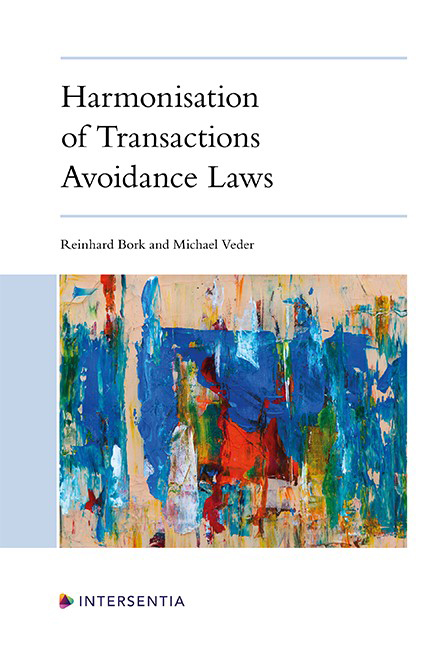Cyprus
Published online by Cambridge University Press: 26 May 2022
Summary
A. INSOLVENCY LAW OF CYPRUS
In Cyprus there is no one single statute to provide for transactions avoidance specifically. Instead, certain transactions avoidance provisions relating to corporate insolvency are to be found in the Companies Law, Cap. 113 of the Laws of Cyprus (“Cap. 113”), while transactions avoidance for individuals are incorporated in civil law, namely the Bankruptcy Law, Cap. 5 of the Laws of Cyprus (“Cap. 5”), which is the main insolvency legislation.
Consequently, insolvency law in Cyprus distinguishes between a legal entity and a natural person, yet it does not differentiate between natural persons acting as consumers and entrepreneurs. This means that an entrepreneur that was operating his business in a personal capacity, and not through a company, will be treated in the same manner in bankruptcy as a consumer, irrespective of whether the debts were incurred in their personal capacity or in the course of that person’s business.
Despite this, the main rules on transactions avoidance are similar in both the Companies Law and the Bankruptcy Law, targeting the avoidance of transactions that apply proportionally to the acts of natural persons and those performed by the agents of a company; namely preferences and intentionally fraudulent transactions are treated equally by pertinent legislations.
Due to the different nature, however, of the financial transactions and lending of a natural person that could be acting as a consumer, as opposed to those of a company, there are some provisions on transactions avoidance that are unique in each case.
The most obvious example of such transactions is of course family arrangements that apply to natural persons only. In this respect, any disposition of property that takes place before and in consideration of a wedding is not voidable, as any other transaction of the bankrupt that was concluded without fair consideration. The same exception applies to any transfer of property that the bankrupt acquired within their marriage to their spouse or children that have a right to that property. These provisions of the Bankruptcy Law distinguish the transactions that are protected under family law from other voidable transactions of the bankrupt.
- Type
- Chapter
- Information
- Harmonisation of Transactions Avoidance Laws , pp. 325 - 332Publisher: IntersentiaPrint publication year: 2022

